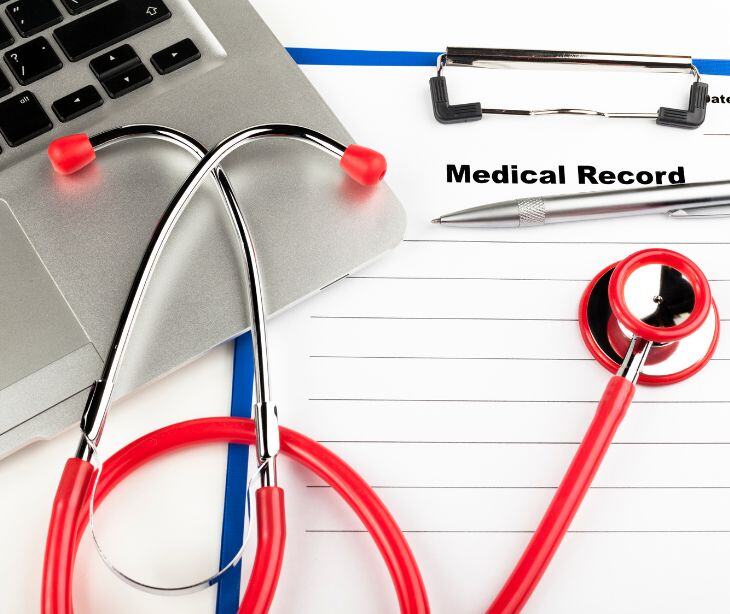6 min read
Examples of HIPAA violations: The high price of unprotected data
Farah Amod
June 13, 2024

HIPAA violations can lead to severe consequences, including substantial financial penalties and reputational damage. By examining real-world examples of these violations, we can understand the repercussions for those who fail to comply with stringent regulations. These cautionary tales stress the value of implementing security controls, conducting regular risk assessments, and complying with HIPAA regulations.
Snooping on sensitive data
One of the most high-profile HIPAA violations in history occurred in 2008 when 13 employees at the UCLA Medical Center were fired for accessing Britney Spears' medical records without authorization. This breach of patient privacy not only resulted in the termination of the offending staff but also led to the suspension of six physicians.
The incident served as a wake-up call, reinforcing the need for HIPAA training and the strict enforcement of confidentiality agreements for all healthcare personnel. As the UCLA Medical Center stated, "All staff members are required to sign confidentiality agreements as a condition of their employment and complete extensive training on HIPAA-related privacy and security issues."
The high price of unprotected data
In another case, the Children's Medical Center of Dallas faced a $3.2 million fine due to a series of HIPAA violations. The breach occurred when a stolen Blackberry device, lacking password protection or encryption, resulted in the exposure of 3,800 electronic protected health information (ePHI) records.
The acting Director of the Office for Civil Rights (OCR) at the time stated the necessity of implementing security measures to safeguard health information, including proactive risk assessments and the immediate resolution of any identified vulnerabilities. This case serves as a reminder that healthcare organizations must prioritize the protection of sensitive data, even on portable devices used for daily operations.
Unsecured file sharing
HIPAA regulations extend beyond the physical confines of healthcare facilities, as evidenced by the case of Lanap & Dental Implants of Pennsylvania. This organization was found to have violated HIPAA rules by posting approximately 11,000 dental records on a file-sharing platform, where they remained accessible for four years.
While the records were not outright shared, the lack of encryption and proper access controls allowed anyone with basic technical skills to gain unauthorized access to this sensitive information. This incident reiterates the need for healthcare providers to exercise extreme caution when handling or transferring ePHI, ensuring that all data is securely encrypted and shared through HIPAA compliant channels.
Social media missteps
Social media platforms can become a minefield for HIPAA violations. The case of Manasa Health Center, a psychiatric service provider in New Jersey, was found to have disclosed a patient's protected health information in response to a negative online review, a clear breach of the HIPAA privacy rule.
As Melanie Fontes Rainer, the Director of the OCR, aptly stated, "OCR continues to receive complaints about health care providers disclosing their patients' protected health information on social media or the internet in response to negative reviews. Simply put, this is not allowed." The Manasa Health Center incident resulted in a $30,000 settlement and the implementation of a corrective action plan, proving the need for healthcare entities to exercise extreme caution when engaging with patients or the public on digital platforms.
Unauthorized access
HIPAA violations can also occur when healthcare professionals access patient records without proper authorization, even if the information is not used for personal gain or shared with others. The case of Doctor H, an immigrant from China, illustrates this point.
During his notice period, Doctor H, who had access to patient records for research purposes, accessed the state healthcare system's records out of curiosity, unaware of the strict HIPAA rules governing such activities. Despite not using or sharing the information, Doctor H was charged with a HIPAA violation and sentenced to four months in jail, along with a $2,000 fine. This case serves as a reminder that unauthorized access to ePHI, regardless of intent, can have severe legal consequences.
The perils of third-party technology
The integration of third-party technologies in healthcare operations can also lead to HIPAA violations. A recent investigation by The Markup revealed that 33 of Newsweek's top 100 hospitals in America used a tracking tool called Meta Pixel, which sent sensitive patient data, including details about medical conditions, prescriptions, and appointments, to Facebook.
While the legality of this practice is still under scrutiny, health privacy consultant and former HHS senior advisor David Holtzman stated that "it is quite likely a HIPAA violation." This case shows the need for healthcare organizations to thoroughly vet and monitor the security measures implemented by any third-party vendors or service providers to ensure the protection of ePHI.
Delayed breach notification
The HIPAA breach notification rule mandates that covered entities must notify affected individuals and the Department of Health and Human Services (HHS) of any data breaches without undue delay, and within 60 days of discovery. Failure to comply with this requirement can result in big penalties, as exemplified by the case of Oklahoma State University—Center for Health Sciences (OSU-CHS).
In this incident, OSU-CHS reported a data breach in which a hacker accessed a web server containing the ePHI of 279,865 individuals. However, it was later revealed that the breach had actually begun 22 months earlier, in March 2016, rather than the initially reported date of November 2017. This delayed notification was deemed a HIPAA violation, leading to a $875,000 settlement and the implementation of a corrective action plan under HHS monitoring.
Neglecting risk management
Effective risk management is a cornerstone of HIPAA compliance, as it enables healthcare organizations to identify, assess, and mitigate potential threats to the confidentiality, integrity, and availability of ePHI. The case of the Alaska Department of Health and Social Services (DHSS) serves as a cautionary tale of the consequences of neglecting this fundamental aspect of HIPAA compliance.
The OCR investigation revealed that DHSS lacked proper policies, security protocols, and a detailed risk analysis to protect patient information. As a result, DHSS was fined a staggering $1.7 million for its failure to manage security risks, spotlighting the need for proactive risk assessments and the implementation of security measures to safeguard ePHI.
Inadequate incident response
The need for a well-defined incident response plan is closely related to risk management. When a data breach or security incident occurs, healthcare organizations must be prepared to respond promptly and effectively to minimize the impact on patient information and ensure compliance with HIPAA regulations.
The case of the University of Mississippi Medical Center (UMMC) illustrates the consequences of failing to have an adequate incident response plan. UMMC faced a $2.75 million fine after a breach involving the ePHI of approximately 10,000 individuals. Investigations revealed that UMMC was aware of the risks but failed to address them until after the breach had occurred. Additionally, the organization did not promptly notify the affected individuals, compounding the HIPAA violations.
Improper disposal of patient records
Even when a healthcare organization's operations are winding down, HIPAA compliance remains a concern. The case of Cornell Prescription Pharmacy, a small pharmacy in Denver, serves as a cautionary tale regarding the proper disposal of patient information.
The OCR found that Cornell Prescription Pharmacy had failed to implement written policies and procedures for the secure disposal of patient records. As a result, documents containing the protected health information of 1,610 patients were disposed of in an unsecured manner. This lapse in proper record disposal led to a $125,000 settlement and the implementation of a corrective action plan to address the organization's HIPAA compliance deficiencies.
In the news
One of the biggest cybersecurity events in history, the Change Healthcare ransomware attack continues to draw massive attention from lawmakers, healthcare organizations, and the public.
It’s estimated that nearly 30% of Americans have had data impacted in some capacity. While UnitedHealth ultimately paid a $22 million ransom to the extortion group, BlackCat, they still face threats from other actors, now aligned with RansomHub, who may have been involved. Despite paying the ransom, data still found its way to the dark web.
Moreover, the U.S. Department of Health and Human Services (HHS), acting through its Office for Civil Rights (OCR), has officially disclosed that the breach will be subject to an investigation. In a letter made public, the OCR outlined its intent to scrutinize the incident in light of HIPAA regulations, signaling the likelihood of charges for a spectrum of violations.
FAQs
What are the penalties for HIPAA violations?
The penalties for HIPAA violations can be severe, ranging from fines of $100 to $50,000 per violation, with an annual maximum of $1.5 million for repeated violations. In cases of willful neglect or criminal intent, the penalties can be even more severe, including fines of up to $250,000 and imprisonment for up to 10 years.
How can organizations avoid HIPAA violations?
Organizations can avoid HIPAA violations by:
- Providing HIPAA compliance training to all employees
- Implementing a risk management system to identify and mitigate vulnerabilities
- Developing and regularly updating HIPAA compliant policies and procedures
- Ensuring the secure handling and disposal of protected health information
- Conducting regular audits and assessments to maintain compliance
- Partnering with HIPAA compliant vendors and service providers
What is the cost of being HIPAA compliant?
The cost of being HIPAA compliant can vary widely depending on the size and complexity of the healthcare organization. For small companies, the cost can range from $15,000 to $50,000, while for larger enterprises, the cost can reach up to $200,000. Factors that influence the cost include the organization's type, the amount of data, employee training, current compliance posture, and the state of the IT infrastructure.
Do HIPAA violations fall under civil or criminal penalties?
HIPAA violations can result in both civil and criminal penalties. Civil penalties are authorized by the Office of Civil Rights (OCR), while criminal violation penalties are enforced by the Department of Justice (DOJ).
Subscribe to Paubox Weekly
Every Friday we'll bring you the most important news from Paubox. Our aim is to make you smarter, faster.



